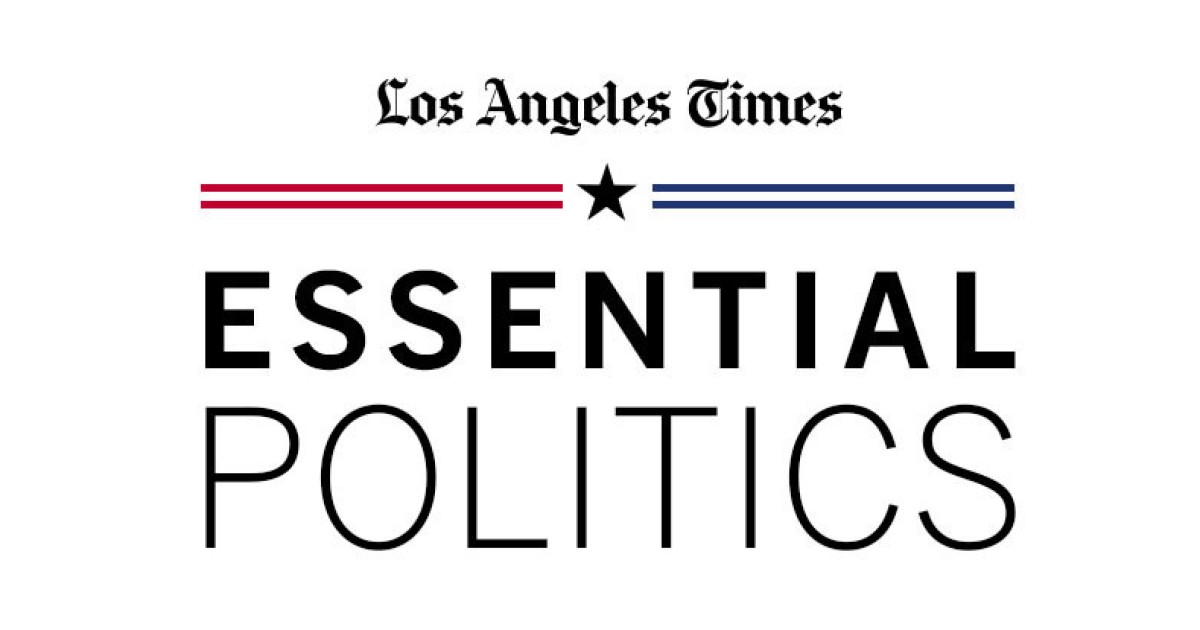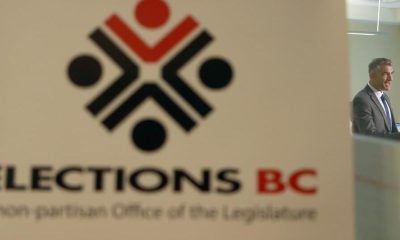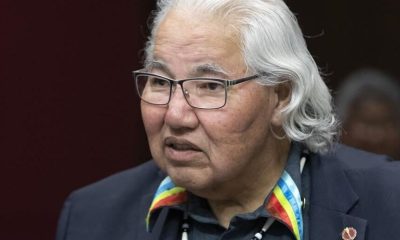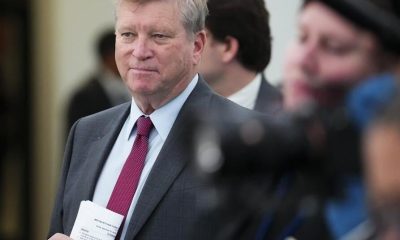This is the July 26, 2021, edition of the Essential Politics newsletter. Like what you’re reading? Sign up to get it in your inbox three times a week.
In a summer filled with public health worries, a state budget surplus and a historic gubernatorial recall election, there’s been little time to talk about what might end up being California’s most consequential political news of 2021.
That’s redistricting, the once-a-decade requirement to draw new maps for congressional, state and local representation — a process that itself is being dramatically reshaped by the COVID-19 pandemic.
With big developments on the horizon, let’s set the stage for what to watch.
The census delay’s domino effect
California’s embrace of independent redistricting — wherein maps are drawn by citizen commissioners rather than the elected officials who serve in those jurisdictions — has relied on robust public input and timely access to accurate, comprehensive data about the number and location of the state’s residents.
An unprecedented delay in obtaining census data has thrown everyone a curveball. Federal officials are delivering the information more than four months late, sparking demand for changes to the established timelines for local redistricting efforts and the maps to be drawn by the 14-member California Citizens Redistricting Commission. Census officials have now promised a full set of data, though not in a user-friendly format, on Aug. 16.
California uses a statewide repository for organizing the needed census data and adding additional information on voters and elections, thus producing the information the statewide citizens panel needs to revise congressional, legislative and state Board of Equalization maps. Local commissions in a number of California communities draw maps for city councils, boards of supervisors, school districts and more.
So the question is this: How long do the state and local panels need to pull this off? And is the delayed process a legitimate threat to holding California’s primary election on June 7, 2022?
The debate over the deadline
Almost two weeks ago, the state citizens redistricting commission decided it wants to move its deadline for producing the final maps to Jan. 14, 2022 — a time frame that would probably be longer than the one given to the 2011 commission, the state’s first independent panel after voters stripped legislators of their power to draw the districts.
The argument, over a series of meetings, was that community groups would struggle to offer thoughtful input if the redistricting deadline is during the end-of-the-year holidays. But the state association of elections officers quickly sounded an alarm, noting that candidates and local officials could be left scrambling. One notable concern is that the maps could be challenged in court — as they were in 2011 — and lead to even further delays in preparing for the primary.
But moving the June 7 primary also presents problems, given the way election returns often take weeks to complete, and planning for the November general election would also be affected if the primary election is moved into late June.
Redistricting: What to watch for
The California Supreme Court, which extended the timeline for statewide redistricting last year once the census delays became apparent, now must consider the request from the state commission to allow them an extra two weeks to draw the maps, until Jan. 14, 2022. There’s no sign on when the justices might act, though sooner would be better.
Officials who oversee the statewide redistricting database have said initial census data will be made public as soon as Aug. 23 — this will allow anyone who wants to tinker with population and geography to do so. But the data needed to draw the official maps probably won’t be ready until late September, due to a 2011 law that requires California prison inmates to be counted in the communities where they last lived and not as residents of the communities where their prisons are located.
When the California Legislature reconvenes in mid-August, lawmakers may want to modify election deadlines to account for the delayed maps. They also will be asked to extend the deadline for local redistricting commissions to produce maps. Those panels, under existing rules, will have even less time unless the Legislature intervenes.
We know the maps will change, in some cases, quite a lot from those drawn a decade ago. And we know California will lose one seat in the House of Representatives, the first rollback in history of the state’s delegation in Washington.
Voters, of course, simply want to know that the elections for those posts are fair, conducted under well-established procedures and using political maps that have been smartly — and fairly — laid out.
‘California Politics’ launches Aug. 13
As the state’s redistricting challenges come into focus, the gubernatorial recall moves into full campaign mode and the Legislature heads into the home stretch for its work this year, we’ll be launching The Times’ newsletter devoted solely to California politics.
This is my final edition of Essential Politics. I look forward to joining the ranks of its readers to catch weekly updates from David Lauter, Noah Bierman and Laura Blasey, my colleagues in our Washington, D.C., bureau.
If you want to keep track of the political ups and downs of the Golden State, sign up for the new newsletter here.
Enjoying this newsletter? Consider subscribing to the Los Angeles Times
Your support helps us deliver the news that matters most. Become a subscriber.
National lightning round
— Lawmakers racing to seal a bipartisan infrastructure deal early this week are hitting a major roadblock over how much money should go to public transit, the group’s lead Republican negotiator said Sunday.
— House Speaker Nancy Pelosi on Sunday named a second Republican critic of Donald Trump, Rep. Adam Kinzinger, to a special committee investigating the Capitol riot and pledged that the Democratic-majority panel would “get to the truth.”
— Former President Trump, again upending American political norms, is moving to remake Congress and the Republican Party in his own image.
— The Border Patrol’s approach to missing migrants has evolved amid an increase in migration and deaths.
— Thomas Barrack, a prominent L.A. investor, awaits trial on charges of obstruction of justice and acting as an agent of the United Arab Emirates.
Today’s essential California politics
— Conservative talk radio host Larry Elder will appear on the recall election ballot, while Kevin Faulconer will not be described as a “former San Diego mayor” on official election paperwork, two California Superior Court judges ruled last week.
— Facing criticism from recall supporters for California’s rise in gun violence and retail theft, Gov. Gavin Newsom on Wednesday called for more accountability and enforcement but insisted the state is on the right path on criminal justice.
— With the renewed spread of COVID-19, Newsom faces a delicate decision over whether to again impose statewide mask requirements in indoor public places and risk upsetting Californians just weeks before they decide if he should be recalled from office.
— An appeals court Friday ruled that state leaders violated the rights of parents by forcing private schools to stay closed during the COVID-19 pandemic.
Stay in touch
Keep up with breaking news on our Politics page. And are you following us on Twitter at @latimespolitics?
Did someone forward you this? Sign up here to get Essential Politics in your inbox.
Until next time, send your comments, suggestions and news tips to politics@latimes.com.



































